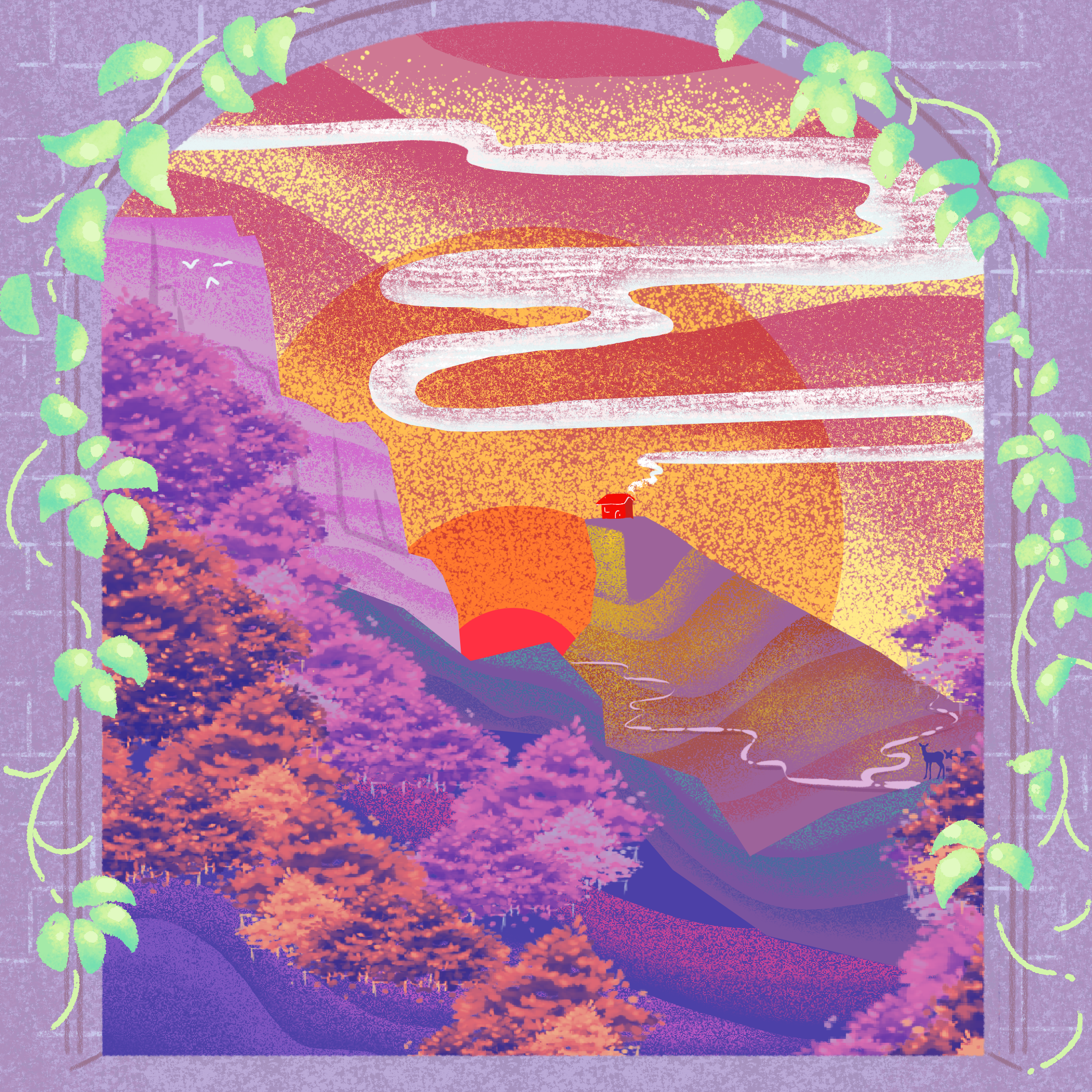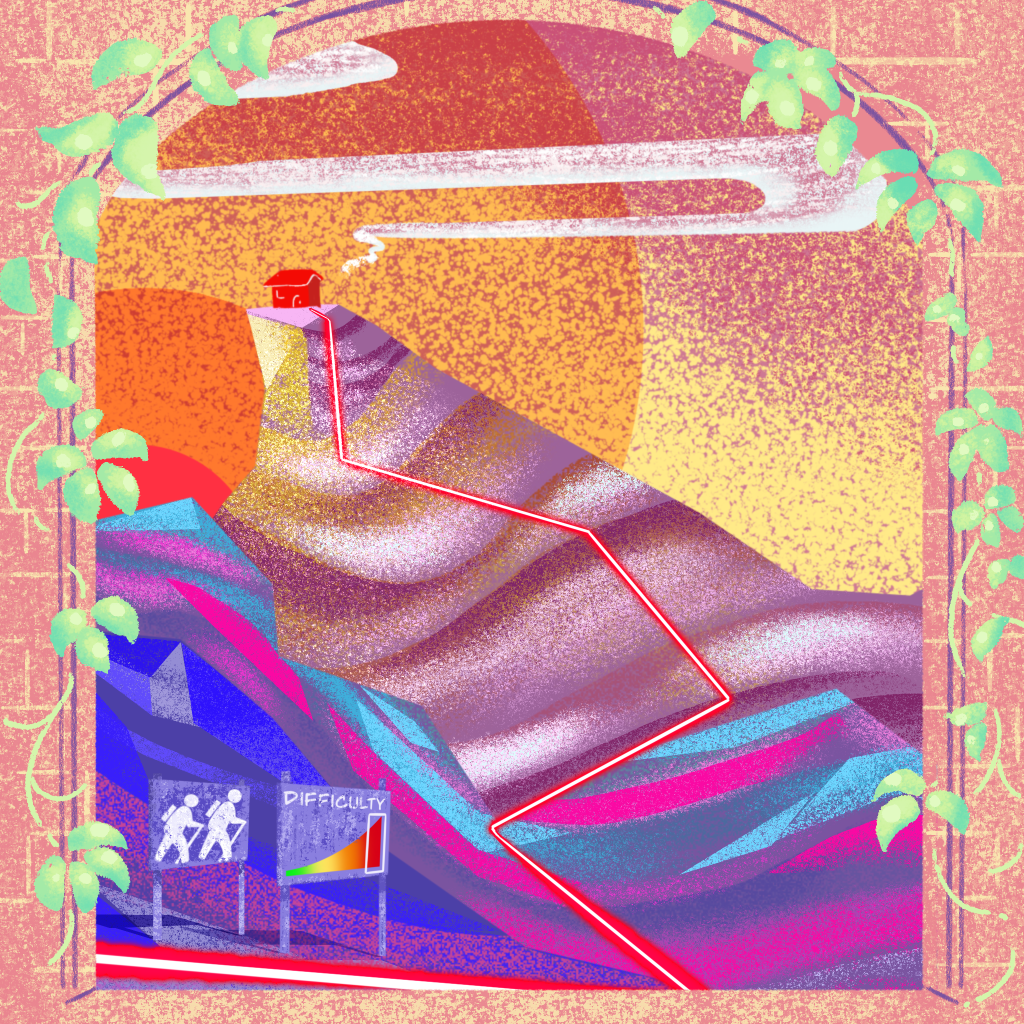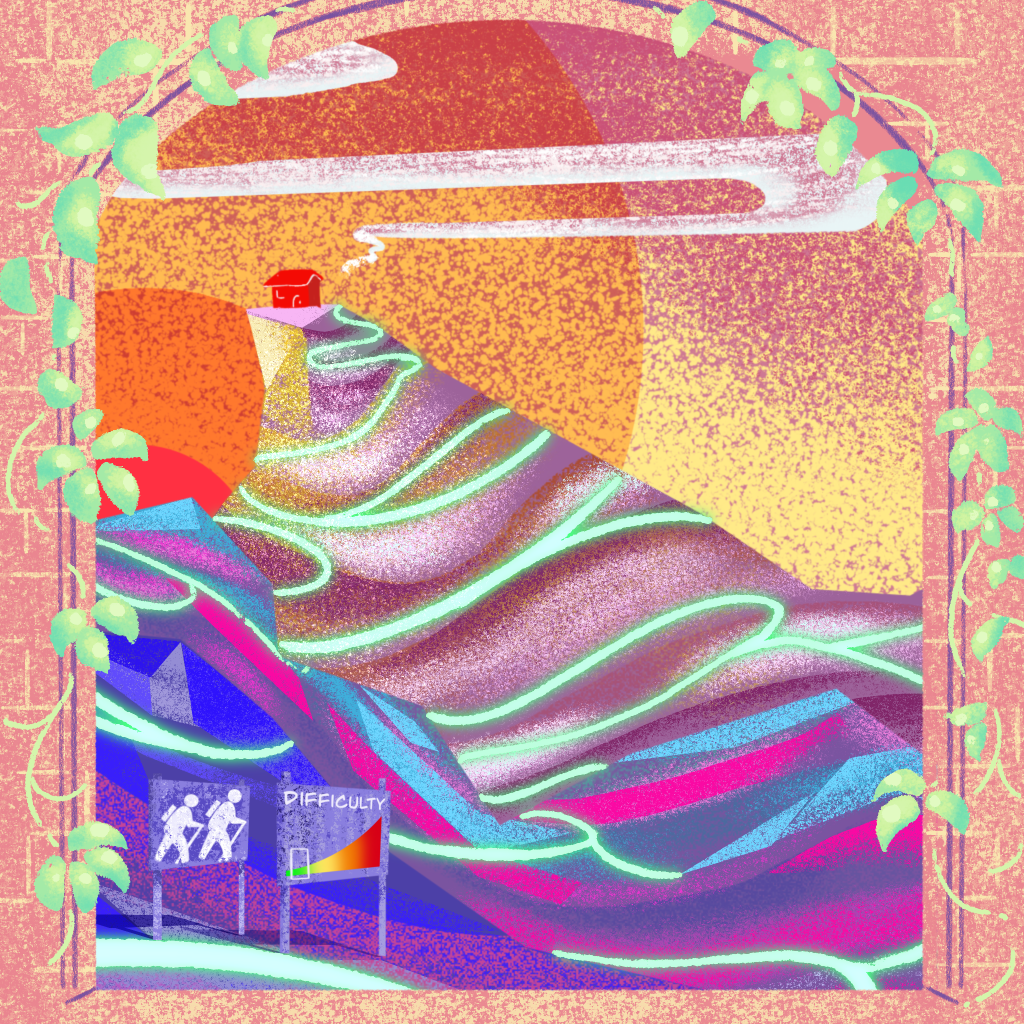11 Elaborate Activity 1
 Activity #E1: Mountain Visualization
Activity #E1: Mountain Visualization

Look at the top of the mountain. At the top, imagine your teacher has hidden key information from a class in a lock box. You’d like to get the information as it will be the key to success in the class.
Now look at the base of the mountain. Looking up from far below, what if you were told you only had one possible trail to the top? No matter how steep or rocky or wet that one path to the top might be, you only have one chance to get there. Learning sometimes is limited like this.
Consider the examples below:
If you need to remember the definition for part of the body (from anatomy class) or the name of a type of rock (from geology class) you often get a basic definition.
- Anatomy term: dorsal (dictionary.com) of, relating to, or situated at the back, or dorsum.
- Geology term: igneous rock (dictionary.com) rocks formed by the cooling and solidifying of molten materials formed beneath Earth’s surface, or at its surface, as lava.

These basic definitions for dorsal and igneous lack detail and are not very interesting. And you likely have piles of words just like this to learn in your classes. A common strategy to remember is to make a note card or use an online quiz program to learn the definition. This strategy takes time but may set you up for failure. Just like having only one path to the top of the mountain, you are forced to remember one specific and potentially boring definition.
Elaboration for learning is different.
Think of adding as much detail to one of the terms above (or pick a concept from your area of study). Before you do so, remember that passion for learning I discussed earlier. Put yourself into the shoes of a child learning about the body. You know less about the world and EVERYTHING is more interesting because you are more naturally curious.
Now, brainstorm all of the things that come to mind when you think “dorsal/igneous/or pick your own vocabulary word”.
This building out of the word “igneous” is elaboration. Describing and explaining ideas with as many details as possible increases the likelihood that you will remember something later.

A well-written textbook about rocks or a good teacher will show a picture, describe a place where igneous rock is common, and may even tell a story about how people may be impacted by these rocks. The more detail like the way the word sounds, pictures you may think of along with the word, and stories related to the word build upon your knowledge. You no longer depend on a single definition to remember.
You are no longer building basic Lego houses, you are moving on to more complicated and fun structures!
